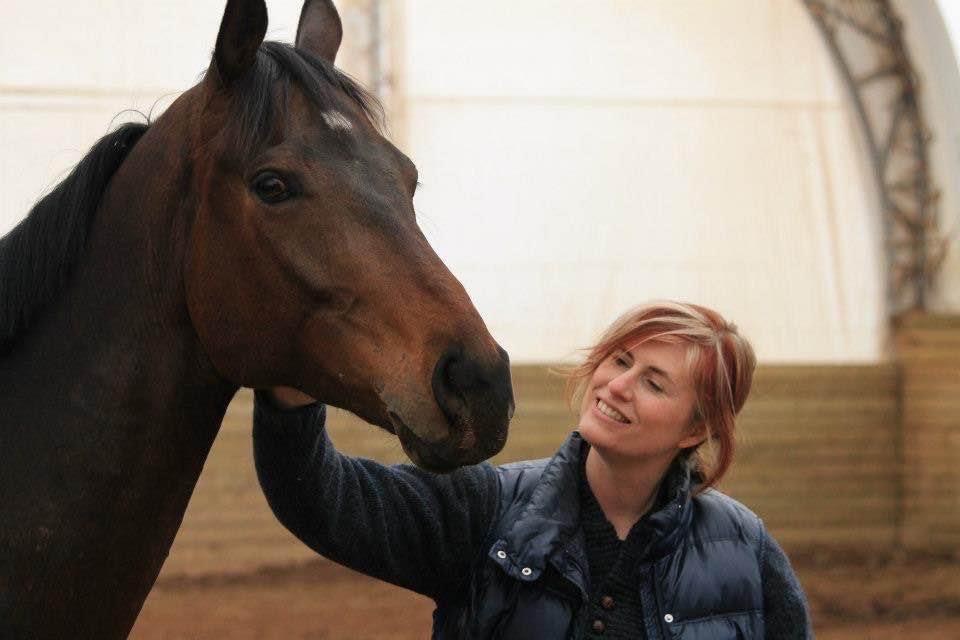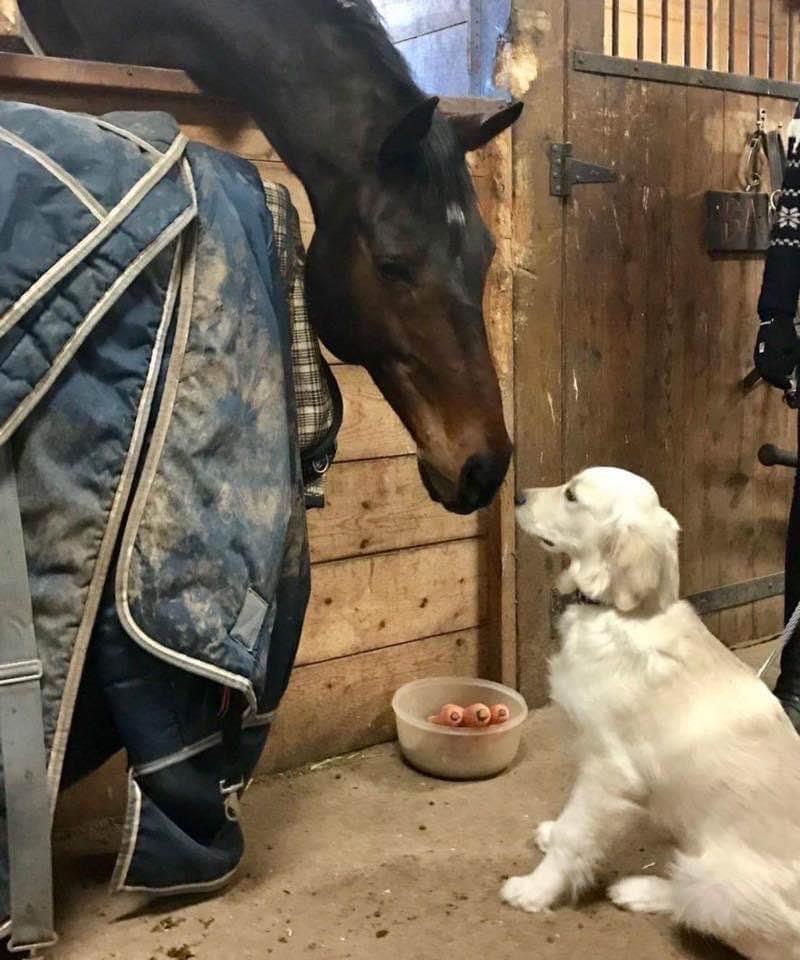
A highly infectious disease has taken the life of a thoroughbred being groomed as a show horse for the coming season, and quarantined a local horse farm.
Pippin, an almost-14-year-old retired race horse who had been boarded by his family at Benchview Equestrian Centre for about eight years, became ill, was tested and found positive for EHV-1, a highly contagious and deadly equine virus, says Benchview’s Jasmine Darte. If caught and treated early, some horses survive, but Pippin’s health declined rapidly over just 12 hours, and could not be saved.
That was Sunday, March 14, and if it had been passed to any other of their 28 horses, they would be expected to have shown symptoms within five to nine days, so it seems to have been an isolated case — none of the other horses were showing any signs of the disease this week. “It looks like we’re good so far,” she says, with the vet telling them they can breathe a little easier while they ride out the quarantine. However, the equestrian centre and its horses remain in isolation for a total of 21 days, during which time they have a very extensive and expensive sanitization and sterilization program in place.
Aside from staff, the centre is closed to anyone else, she says.
Designated staff monitor the horses around the clock, taking their temperatures and watching for any signs of illness.
“We watch their movement, to see if something’s off. Sometimes they have swelling, they may have bladder issues, or may be leaning up against the fence,” she says.
Their vet also checks in with them several times a day, she says. “He’s very confident with communicating regularly, and he would be here in half an hour to administer medication if necessary.”
The protocols are eerily similar to what people are going through with COVID, and can be a respiratory illness, although in Pippin’s case, it was a neurological disease, and one of the worst strains.

While it only affects horses, people can pass the disease from one farm to another if they come in contact with it, carrying it on their hands or clothes, transmitted through the air by droplets from the horse’s nose — which is why people are not allowed on the farm, except for staff, she explains. “We can’t have clients here taking lessons.”
It’s very common, with a large number of horses becoming infected before they reach the age of two, says Darte, although many never show any symptoms. The disease can remain dormant, and come out at times of high stress, similar to chicken pox and shingles in humans.
For a male such as Pippin, the spring mating system is enough to cause stress levels to increase, with female horses nearby but fenced off. He was showing signs of stress, just looking a little off, before he started displaying indications of the virus, says Darte. “But there is really no way to be sure why it happened. It could have been anything.”
Although horses need to be isolated, they can be kept in the pods they were with before the virus was discovered.
“We have different groups of horses, small groups that go out with each other regularly. As long as they don’t show symptoms, they can continue to do that.”
Only two horses that were in contact with Pippin needed to be separated from their group, she says.
Although people might think having a sick horse is the result of poor hygiene or not vaccinating their horses, “it can happen to anybody.”
A nearby farm lost a foal around the same time as they lost Pippin, but not from the same virus.
Although there isn’t anyone close by going through the same thing, there are many other farms in Ontario, the closest in Grimsby, who are going through it at the same time. One in Acton has lost three of their 85 horses recently, she says.
“This just blindsided me. We’re very cautious. When we do a show, we ask the kids not to touch any other horses. We didn’t do any shows last year because of COVID. This really threw us off.”
Even Florida is having a hard time battling the virus, she says, with several Olympic-level events cancelled because of it.
It’s putting a real financial strain on the centre, which has gone through two lockdowns, for a total of six months, and had only opened again two weeks ago after the most recent lockdown that began in December.
When they were allowed to open, “people were getting their kids out the door as soon as possible. They had missed that during the lockdowns. We were busier than ever.”
But not any more, and with no way of knowing, even after the current quarantine due to the equine virus, what the restrictions will be.
An auction is being organized by a friend to help Benchview, to cover the expenses of sanitizing and sterilizing the farm.
It will be held online, from 8 p.m. March 26 to March 28 at 8 p.m.
If anyone has a prize to donate for the auction, you can message Sam Darte Miller, or Deanna Mazachowsky.
Information about the auction can be found online on the Benchview Equestrian Centre Facebook page, or for the auction itself to: https://www.facebook.com/events/3646606702118786/